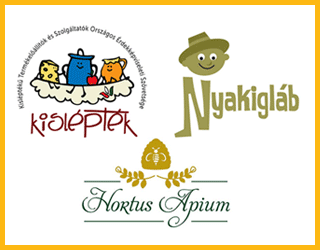Linkek a témában:
The Invention of Clocks and Calendars (en)
Celestial bodies, the sun, moon, planets, and stars have provided us a reference for measuring the passage of time throughout our existence. Ancient civilizations relied upon the apparent motion of these bodies through the sky to determine seasons, months, and years.
The Orthodox Ecclesiastical Calendar (en)
Between AD326 and AD1582, Christianity determined Easter using an algorithm approved by a Church Council in AD325, with the equinox defined as March 21. From AD1054 (when the Orthodox and Catholic Churches split) through AD1582 both the Catholic and Orthodox Churches celebrated Easter on the same date, still using the algorithm from AD325. The Julian Calendar was used by the European (and Christan) communities until the Gregorian reform of 1582.
Since AD1582 October (when the Gregorian Calendar was adopted by much of Catholic Europe), the Orthodox Easter usually falls on dates different than the Western Christian Easter, although apparently the Churches are discussing using the same formula to determine Easter - probably a formula different than that currently used by either Church.
The Orthodox Easter is determined in the Julian Calendar. It has been claimed that Orthodox Easter does not fall on the date of Passover (15 Nisan in the Hebrew Calendar), or before it; this is true recently, but using the modern formulae for determining the date of Passover (rules which go back to the fourth century A.D.), one finds that, in fact, Easter occurred on the first day of Passover several times before the year A.D. 1000. From 1900 until 2099 the Eastern Easter will fall one (45.5%), four (4.5%), or five (21.5%) weeks after the Western Easter - and on the same date in 57 (28.5%) of those years. (I've compiled some Tables showing the offsets between Orthodox and Western Easters from 1583 through 3000 that shows this information.)
Calendar FAQ (en)
The Calendar FAQ includes a number of formulas for calculating various calendar values.
I have written a very simple implementation of these formulas in the C language. Rather than providing the most efficient code, the implementation intentionally follows the formulas very closely.
Calendrical Systems (en)
Aztec Calendar
Babylonian Calendar
Calendar
Chinese Calendar
Egyptian Calendar
Epact
French Revolutionary Calendar
Friday the Thirteenth
Golden Number
Gregorian Calendar
Hebrew Calendar
Hindu Calendar
Iranian Calendar
Islamic Calendar
Julian Calendar
Julian Date
Leap Day
Leap Year
Mayan Calendar
Modified Julian Date
Roman Calendar
History of Telling Time (en)
Prehistoric man, by simple observation of the stars, changes in the seasons, day and night began to come up with very primitive methods of measuring time. This was necessary for planning nomadic activity, farming, sacred feasts, etc..
The earliest time measurement devices before clocks and watches were the sundial, hourglass and water clock
Naptártörténelem - hogy kezdődött?
Milyen naptártípusok léteznek? melyik a legrégebbi nyomtatott naptár?
óra.lap.hu
Az ora.lap.hu oldal Magyarország legnagyobb gyûjtõportálja e témában mely bemutatja a hazai és külföldi óramárkákat, gyártókat, forgalmazókat és kapcsolódó oldalakat. Összefogja és rendszerezi a szakmában érintett cégeket, ötleteket, híreket, egyre bõvülõ szakmai résztvevõkkel és látogatótáborral.



